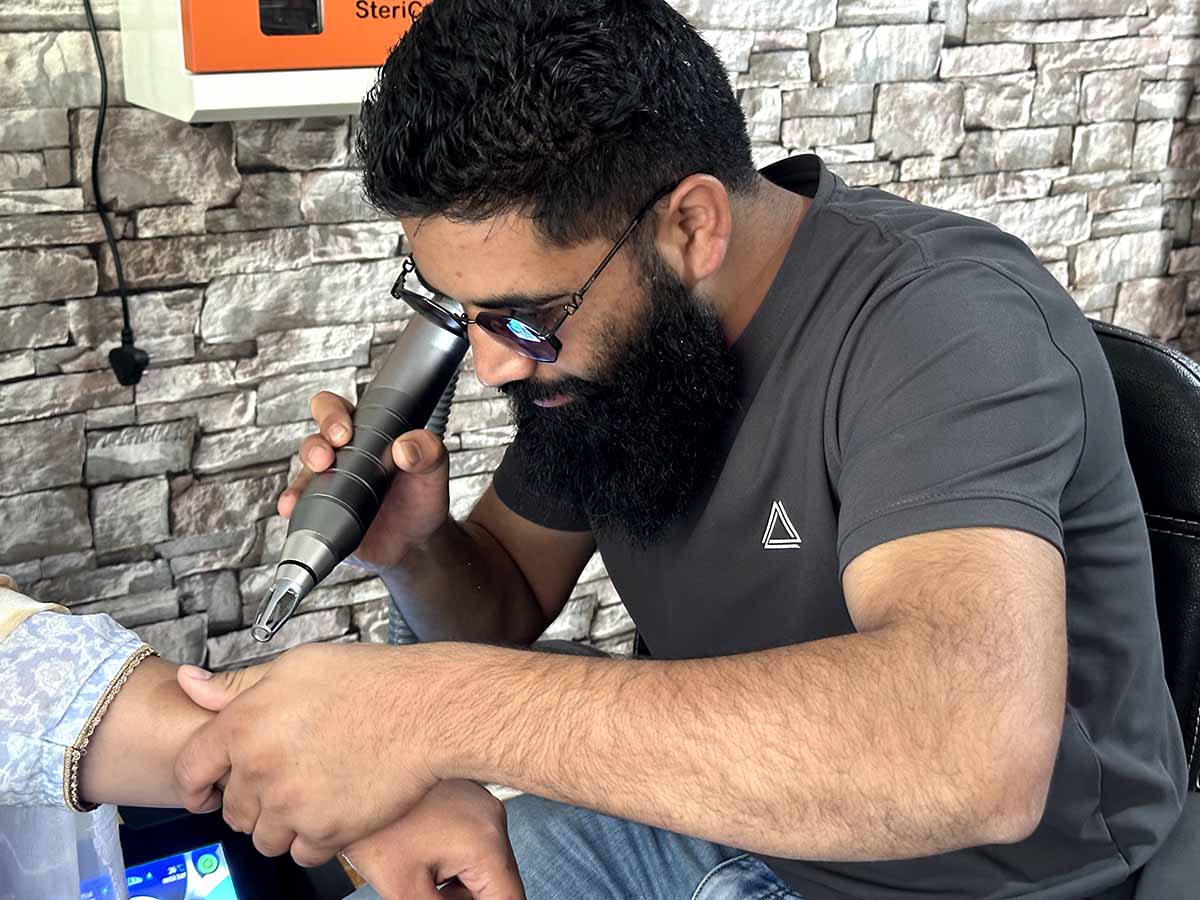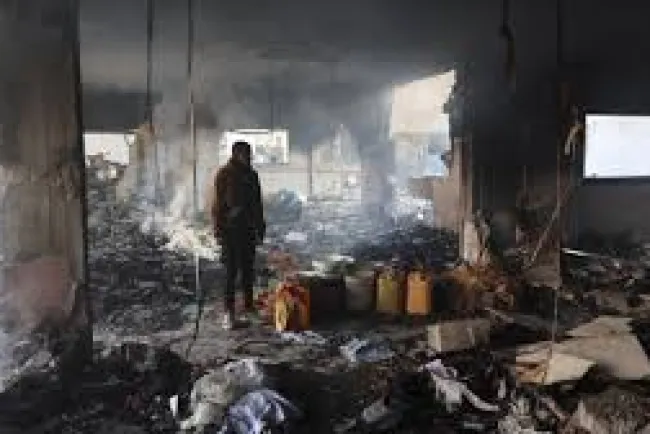Youth in Jammu and Kashmir Seek Tattoo Removals: A Cultural Shift
In a surprising cultural shift within the Jammu and Kashmir valley, an increasing number of young people are opting to have their tattoos removed, reflecting a deeper societal transformation. The Valley Care Tattoo Removing Clinic in Srinagar has become a focal point for this trend, with hundreds of youngsters visiting daily to erase their inked identities. This article explores the motivations behind this movement and the implications it holds for the region's youth.

The Surge in Tattoo Removals
Bazit Basher, a prominent tattoo removal artist in Srinagar, has reported an astonishing record of removing over 100,000 tattoos. The motivations behind these removals are varied, as many youngsters express concerns about the religious implications of their tattoos, particularly those depicting weapons or symbols associated with violence. The fear of scrutiny from security forces and societal pressures regarding religious sentiments are significant factors driving this trend.
According to Basher, many of his clients realize only later that tattoos are not permitted in their religious beliefs. Initially offering his services for free, he later introduced a minimal charge of 100 rupees to accommodate those who may not afford the process. This reflects a growing awareness and changing attitudes among the youth regarding tattoos, which are often considered taboo in this conservative region.
Religious and Cultural Influences
Islamic scholars and community leaders have emphasized the prohibition of tattoos in Islam, further fueling the desire for removal among the youth. Sermons against tattooing highlight the belief that such acts divert individuals from their faith, leading to health issues and social stigma. Young people, especially those from traditional families, may feel compelled to adhere to these teachings, prompting them to seek removal as a way to realign with their cultural values.
The stigma surrounding tattoos often leads individuals to avoid discussing their reasons for removal publicly, as societal judgment can be harsh. Basher notes that the majority of tattoos being removed are linked to personal experiences, such as failed relationships or imagery like AK-47 rifles, which can attract unwanted attention from authorities.
The Shift in Societal Norms
This growing trend of tattoo removals indicates a significant shift in societal norms in Jammu and Kashmir. As the youth become more conscious of their identities and the implications of their choices, the demand for tattoo removal services reflects a broader desire for acceptance and conformity to cultural expectations.
The clinic's environment has become a safe space for individuals seeking to shed their past choices and align themselves more closely with their community's values. This movement not only highlights the personal journeys of these young people but also underscores the influence of religious beliefs and societal pressures in shaping behaviors and attitudes.
Conclusion
The rising trend of tattoo removals among the youth in Jammu and Kashmir signifies a complex interplay between personal identity, cultural values, and religious beliefs. As more individuals seek to erase their inked pasts, it reveals a broader dialogue about acceptance, belonging, and the pressures of societal norms. The Valley Care Tattoo Removing Clinic stands as a testament to this cultural transformation, providing a unique lens through which to understand the evolving identities of young people in the region.
For ongoing insights into cultural trends in Jammu and Kashmir, stay updated with our blog.
What's Your Reaction?
















